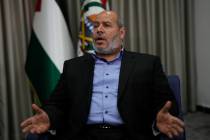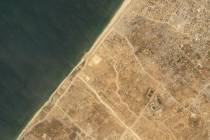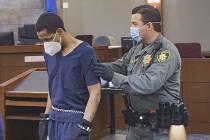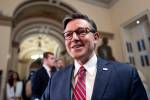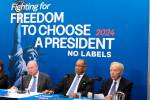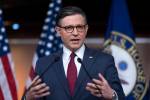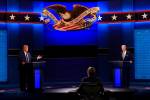Nobody got elected by embracing concept of giving money to foreigners
The impressive assembly at last week's Impact '08 in Nevada luncheon at the World Market Center was exceeded only by the lofty goals of the representatives of the Center for U.S. Global Engagement.
It was hard not to be moved by the cooperative spirit of the coalition of business executives, nongovernmental organizations and community leaders who recognize the importance of protecting our national security while building economic prosperity and strengthening humanitarian values through what is in essence strategically distributed foreign aid. Divergent political views were put on hold as liberals and conservatives broke bread and expressed common sentiments about the need to improve our nation's image in the world.
As I listened recently to former Secretary of Homeland Security Tom Ridge extol the virtues and importance of building a better, safer world through global engagement and real moral leadership, I found myself wondering about two things:
First, there was no direct mention of President George W. Bush and his B-movie cowboy approach to complex world affairs. Ironically enough, for as disengaged as Bush has been in so many areas, his focus on battling AIDS in Africa might end up as one of the brightest points of his presidential legacy.
Second, at a time when the American public is focused on rising prices at the gas pump and a deepening of the housing mortgage crisis, they might not take kindly to presidential candidates who are willing to promote the high-minded concept of increasing foreign aid in order to improve our moral standing, open doors for business and make us a safer nation.
It's a conversation I have difficulty believing will take place in the 2008 presidential campaign.
Political consultant: "Have you read the 'Smart Power: Building A Better, Safer World' policy statement forwarded by the Center for U.S. Global Engagement? It's a remarkable piece of work that appears to hold the key to restoring America's image in the world."
Candidate: "It's filled with great truth and admirable goals. Bury it, quickly. Nobody got elected by embracing the concept of strategic increases in foreign aid."
Perhaps I'm too cynical. Maybe there are candidates among the contenders from each party who are willing to discuss and even endorse the center's strategy. How about it, candidates?
With Hillary Clinton, Barack Obama, and John Edwards in Southern Nevada for tonight's debate at Cashman Field Center and Saturday's caucus, it's a good week to ask the question. I won't hold my breath awaiting the answer.
It's a political reality that former U.S. Sen. and Nevada Gov. Richard Bryan acknowledged. Ever the historian, Bryan noted in detail that the European Recovery Program, better known as the Marshall Plan, successfully helped rebuild Europe following World War II. The foreign aid raised our world standing, opened economic corridors and international trade, and helped steer some nations away from communist influences. But President Harry S. Truman wasn't popular with the home folks.
Plenty of high-powered politicians have signed on in support of the center's philosophy -- former Senate Majority Leaders Tom Daschle and Bill Frist among them -- but I noticed that most of them are safely retired. The Nevada host committee included a number of elected officials, but few are likely to be asked to vote to send aid to some impoverished nation.
There's little doubt that expanding and improving our place in the world would pay dividends in Nevada. According to the center's Nevada contingent, the state exported nearly $4 billion in goods in 2005, and trade supports about 250,000 jobs here. Nearly 5 million international visitors come to Nevada each year, most of them on the Strip.
Strategically placed foreign aid is an essential component of American policy, Ridge observes. Smart power works.
"With our nation's security and our economy at stake, the next president must not only strengthen our military capabilities, but also our nonmilitary capacity to address global political, economic, and humanitarian challenges," Ridge says.
Will any of the current presidential candidates be bold enough to endorse the center's "smart power" approach?
I doubt it. I think they'd rather be elected first.
Just the fact that so many people from such diverse political backgrounds can come together in Las Vegas to sing the same notes says a lot about the admirable mission of the Center for U.S. Global Engagement.
We'll see whether any presidential candidate joins the choir.
John L. Smith's column appears Sunday, Tuesday, Wednesday and Friday. E-mail him at Smith@reviewjournal.com or call (702) 383-0295.













